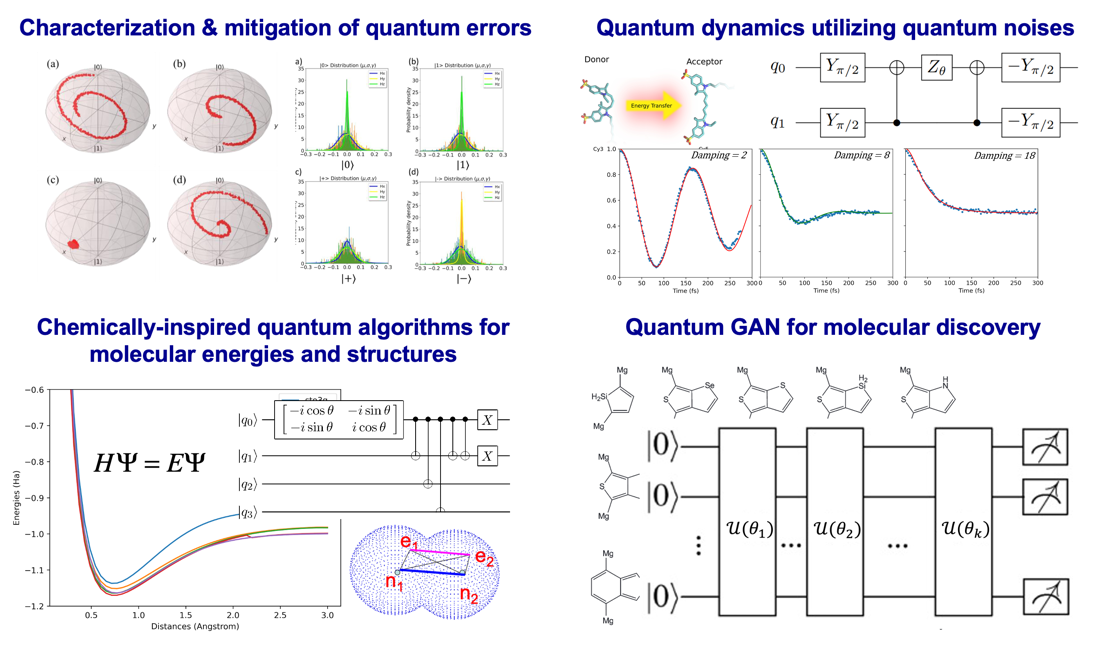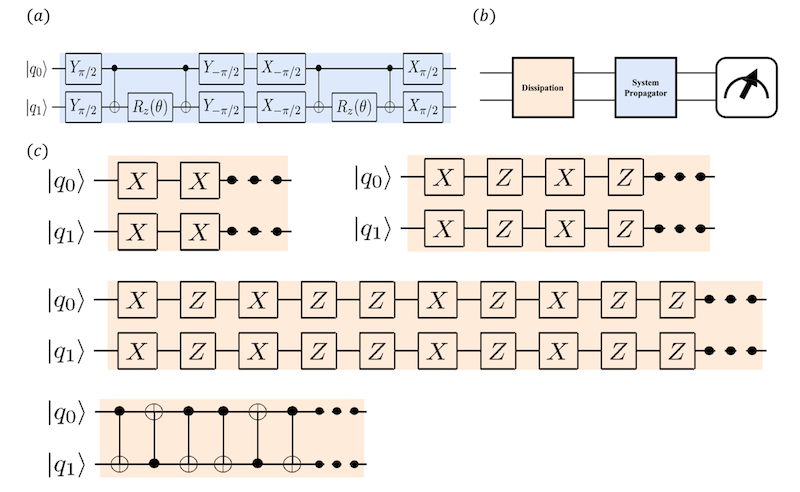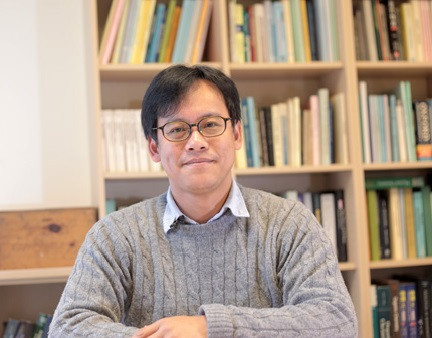第一列
In this research project, we aim to develop a general and comprehensive procedure to measure the dynamical characteristics of quantum noises for a quantum-computing qubit device, and then to implement a quantum circuit simulation code that allows full integration of realistic noises measured in the aforementioned procedure in a classical simulation of quantum computation. We will then apply these tools to elucidate quantum noises on (including but not limited to) IBM-Q and IonQ systems, and the results would enable us to make significant advances in designing three types of novel quantum algorithms: (1) quantum simulation of open quantum system dynamics, (2) noisy variational quantum eigensolver approach for quantum chemistry, and (3) encoding and computation of chemical information in noise-tolerated quantum space. We also plan to work closely with quantum hardware developers in Taiwan to help with noise reduction and mitigation for their home-built devices.

In this research, we aim to develop a comprehensive method to measure and simulate quantum noise in qubit devices, integrating realistic noise into quantum circuit simulations. These tools will be applied to advance quantum algorithms for open quantum systems, quantum chemistry, and noise-tolerant computation, with collaboration on noise reduction for Taiwan-based quantum hardware.
Decoherence-inducing gate sequences for quantum dynamics of dissipative open quantum systems
Quantum simulation represents the most promising quantum application to demonstrate quantum advantage on near-term noisy intermediate-scale quantum (NISQ) computers, yet available quantum simulation algorithms are prone to errors and thus difficult to realize with limited circuit depth on nowadays quantum devices. In this work, we propose a novel scheme to utilize intrinsic gate errors of NISQ devices to enable controllable simulation of open quantum system dynamics without ancillary qubits or explicit bath engineering, thus turning unwanted quantum noises into useful quantum resources.Specifically, we simulate the energy transfer process in a photosynthetic dimer system on IBM-Q cloud. By employing tailored decoherence-inducing gates, we show that quantum dissipative dynamics can be simulated efficiently across coherent-to-incoherent regimes with results comparable to those of the numerically exact classical method. Moreover, we demonstrate a calibration routine that enables consistent and predictive simulations of open-quantum system dynamics in the intermediate coupling regime. This work provides a new direction for quantum advantage in the NISQ era.

Quantum circuits for the dissipative quantum system simulation using decoherence-inducing gate sequences. (a) The circuit implementing the time-evolution propagator for the unbiased exciton dimer in our experiments. (b) Illustration of the simulation scheme. The full simulation circuit first undergoes dissipative operation via different decoherence-inducing gates that introduce decoherence into the simulated system and followed by the propagator of the system Hamiltonian. (c) Various gate sequences used for the dissipation circuit. Here the (XZXZZ)2 and SWAP2 are effective decoherence-inducing gate sequences.
Reference: Shih, L.-C., Sun, S. & Cheng, Y.-C. Efficient Quantum Simulation of Open Quantum System Dynamics on Noisy Quantum Computers. Phys. Scr. 99, 035101 (2024).
